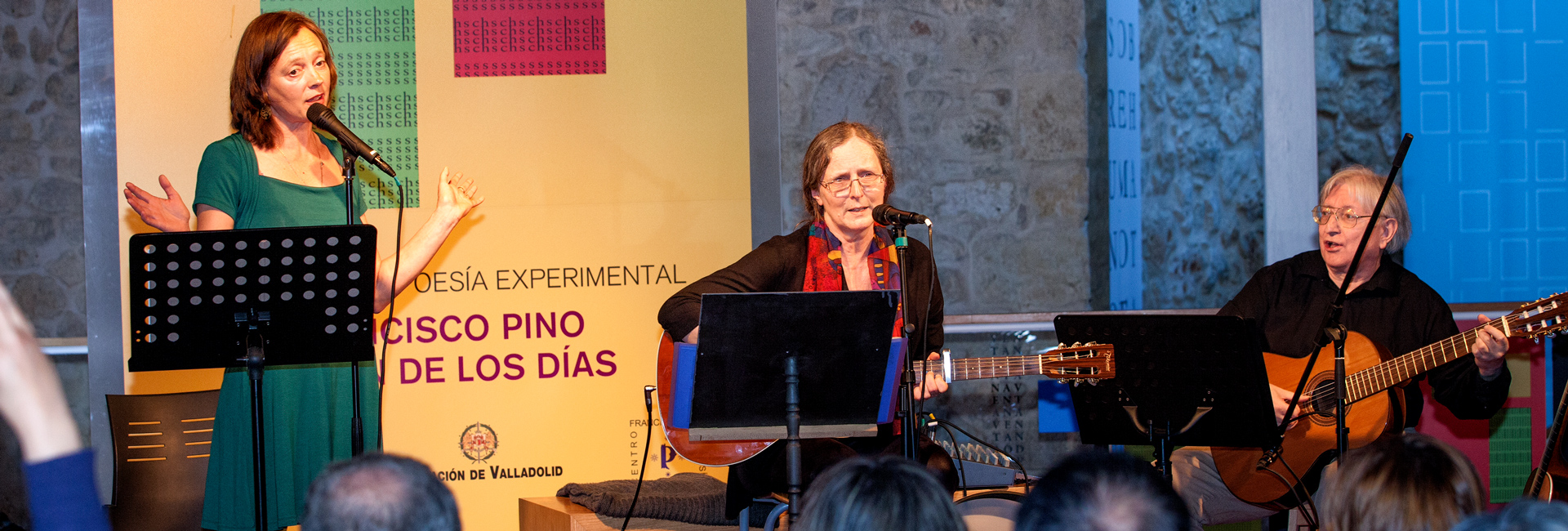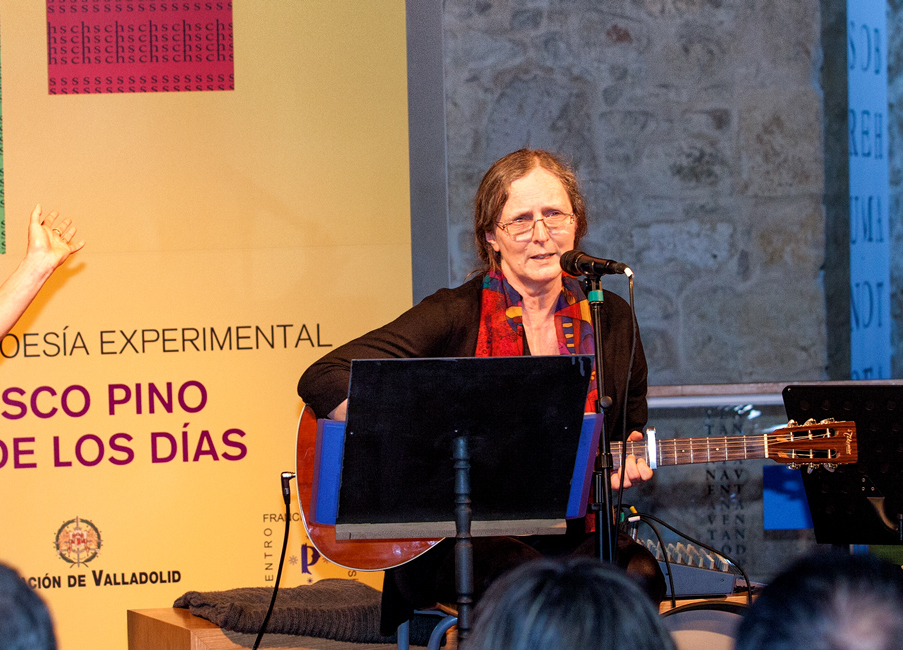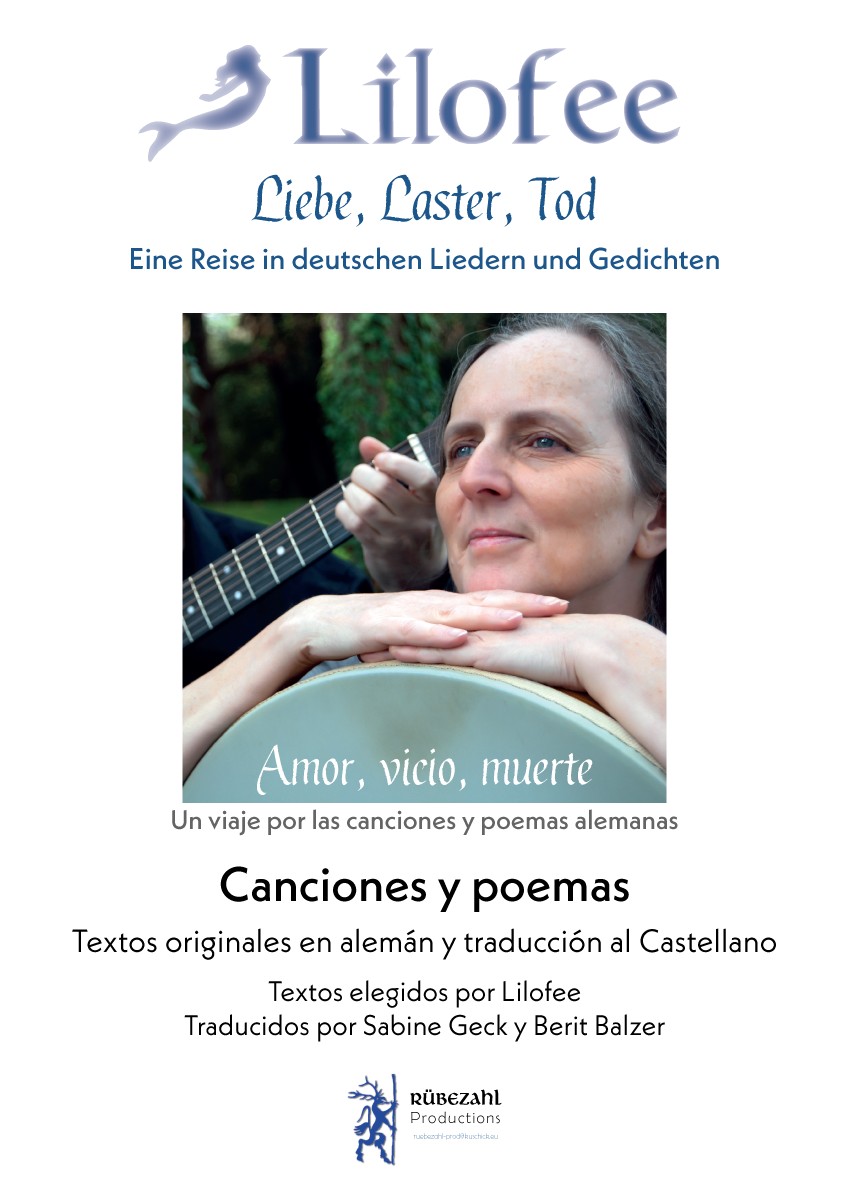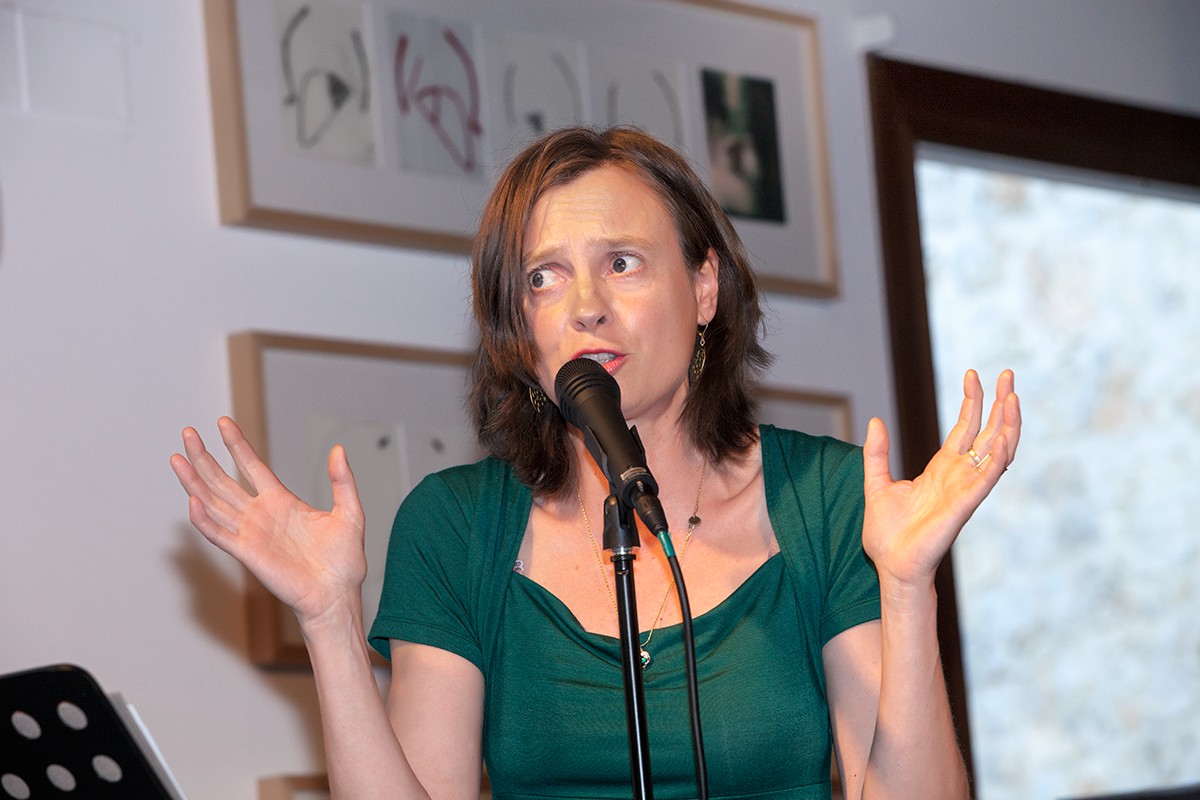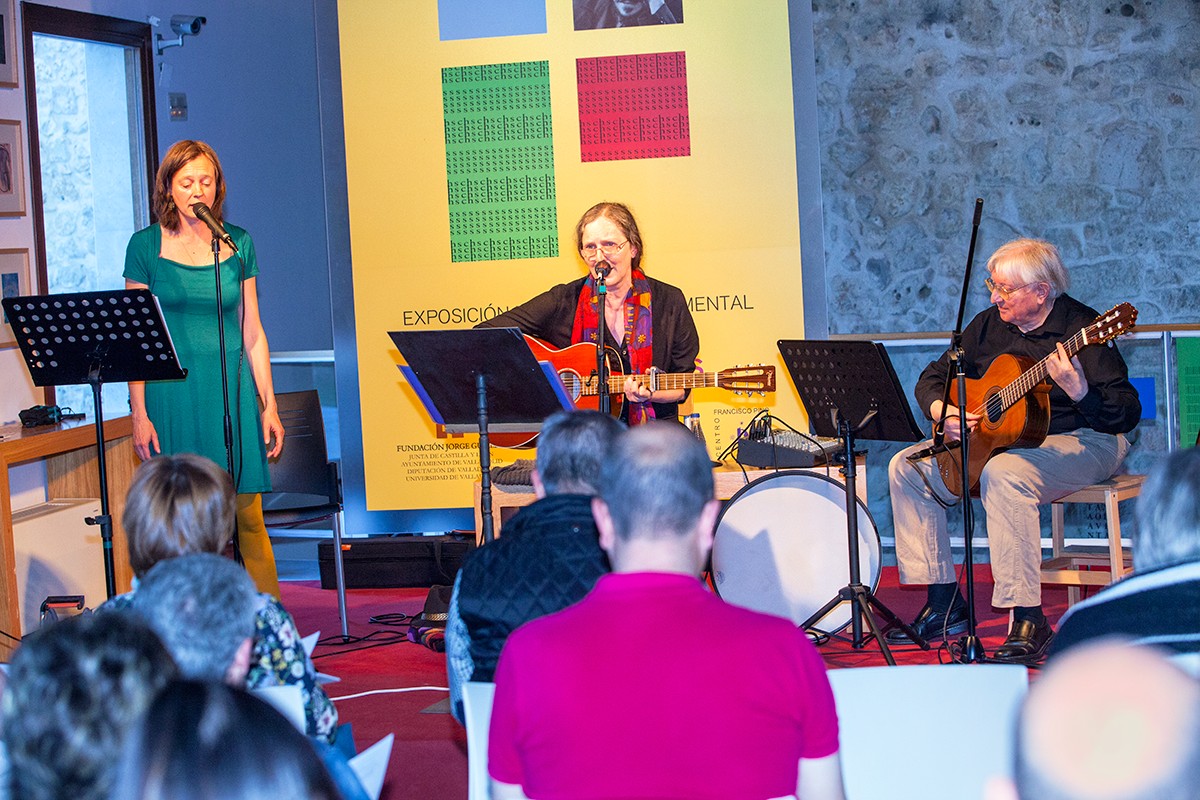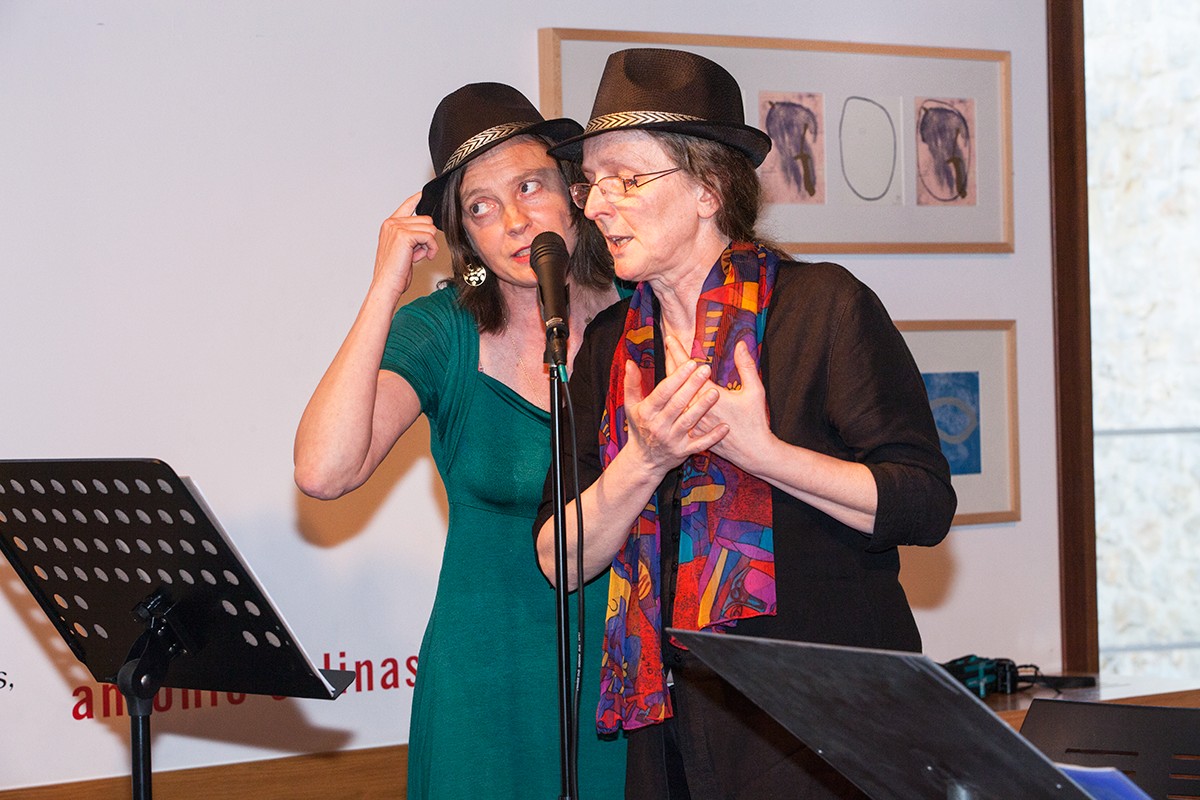Love, Vice and Death – A trip through German songs and poetry
An extraordinary concert and recital
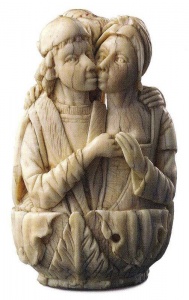
The German singer Lilofee already offered a concert of songs and ballads of Germanic cultures (Germany, Austria, Switzerland, part of Belgium, Netherlands and some Scandinavian countries), based on personal research. Out of this program she chose a number of songs more focused on Germany and its neighbor Austria to which she adds more songs in order to present a new recital which combines singing with a recital of poetry done by a speaker. In this program she presents a careful selection of songs and poems which represent a time span of several hundred years. The mayor part have known authors. The recital shows the continuity of the tradition transmitted by the German language and its dialects. Mostly they are sung or recited ballads, although its forms and styles have changed in the passing of the time. Some of them are still popular and have been transmitted without interruption. Others have been rediscovered and saved from oblivion by researchers and collectors.
A special case is the one of songs that have been “killed” as singer-and songwriter Franz-Josef Degenhardt says. Among them are folk songs or popular songs with known author, used and manipulated by the Nazi regime. Due to this, after the second world war very few singers dared to interpret them, be it for rejecting the ideology or for fear to be associated with Nazism.
The recital proposed by Lilofee shows the nexus between medieval origins of songs and its manifestations in the 20th and 21st century. Poetry recited by a speaker and songs interpreted by Lilofee do alternate. The subjects of literary and poetic creation are central and repeated, such as love, morality and death, in many of its aspects. In German y there is one particular case: the “Lieder” or poems set into music. Since the 17th to the 20th century many compositors put melodies to to known lyrics and also new melodies to lyrics already associated with a melody. Some of the best known lieder are based on poems of Goethe, Heine (as examples, and have been put into music by compositors like Schubert, Schumann, Karl Loewe, Friedrich Silcher). For the 20th century is to be mentioned the outstanding work of Bertolt Brecht with several composers such as Hanns Eisler and Kurt Weill and extraordinary singers such as Lotte Lenya and Ernst Busch. The songs are still performed today. Later on, during the 60s and 70s of the last century renowned singer- and songwriters such as the already mentioned Franz-Josef Degenhardt (Germany) and Georg Danzer (Austria) returned to take the tradition of old troubadours and poets.
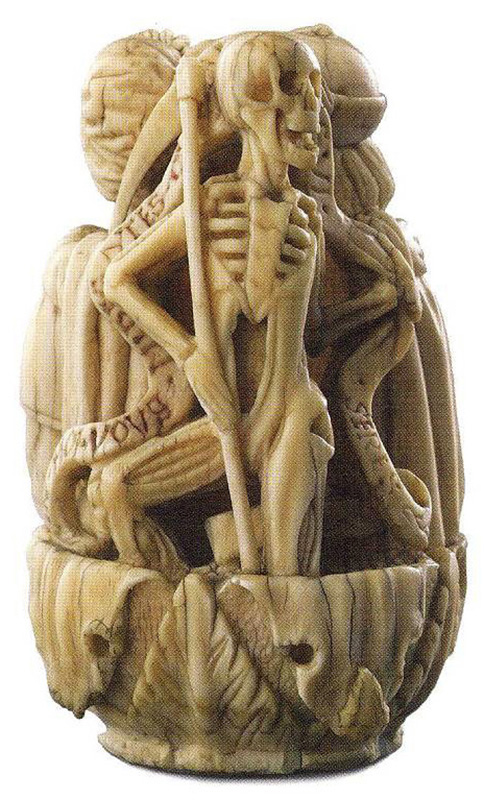
Lilofee on stage
As singer she shares her performing talent, an astonishing voice with a very particular timbre which knows how to transmit all aspects and emotions inherent in the songs. This converts this concert-recital into a totally unique performance. The work of the narrator who recites the poems in its original language, as well as the musical work of Raphaël Parejo who signed the arrangements and accompanies the singing of Lilofee, contribute to create a unique experience.
The following flyers can be downloaded
Liebe, Laster, Tod – Eine Reise durch deutsche Lieder und Gedichte (PDF, de)
Amor, vicio, muerte – Un viaje por canciones y poemas alemanes (PDF, es)
Amour, Vice, Mort – Un voyage par chansons et poèmes alemands (PDF, fr)
Love, Vice, and Death – A Trip through German songs and Poetry (PDF, en) not yet available
Some photos of the concert in Urueña (centro eLea), Valladolid, 2nd of june 2018. Thanks to Juan Bosco Hormaechea Arenaza.
Amor, vicio, muerte
Un concierto-recital excepcional
La cantante alemana Lilofee ya nos ofrecía un recital de canciones y baladas de las culturas germánicas (Alemania, Austria, Suiza, parte de Bélgica, Países Bajos y algunos países nórdicos) basado en investigaciones personales. De dicho programa ha elegido una serie de canciones más centradas en Alemania y su vecina Austria a las cuales ha añadido nuevas canciones para presentarnos un nuevo recital que entrama canto con poesías recitadas por un(a) narrador(a).
Este nuevo programa presenta una selección cuidada de canciones y poemas que abarcan varios siglos. La mayoría son de autores identificados. El recital muestra la continuidad de la gran tradición transmitida por el idioma alemán y sus dialectos. En su mayoría son baladas cantadas o recitadas, aunque formas y estilos han cambiado en el transcurso de los siglos. Algunas permanecen conocidas y se han perpetuado sin hiato mientras otras han sido rescatadas del olvido por investigadores. Un caso particular es él de las canciones que han sido “matadas” como dice el cantautor Franz Josef Degenhardt. Entre ellas figuran canciones folklóricas o de autores conocidos, recuperadas y manipuladas por el régimen Nazi, lo que hizo que después de la segunda guerra mundial pocos cantantes se han atrevido a interpretarlas, sea por rechazo a la ideología nazi o por miedo de verse asociados al nazismo.
El recital propuesto por Lilofee viene haciendo puente entre las raíces que yacen en obras medievales, pasando por varios siglos hasta el siglo XX y XXI. Alternan obras poéticas recitadas por un narrador y canciones interpreta- das por Lilofee. Las obras abarcan temas recurrentes y centrales de la creación literaria y lírica alemana que tratan del amor, de la moral y la existencia, todos tomados en todas sus facetas. Una particularidad de Alemania es el caso de los “Lieder” o poemas puestos en música. Desde el siglo XVIII y hasta el siglo XX muchos compositores pusieron melodías nuevas a textos conocidos y hasta otra música a “lieder” anteriores. Los “lieder” más conoci- dos se basan en los poemas de Goethe y Heine y fueron puestos en música por compositores como Schubert, Schumann, Karl Loewe, Friedrich Silcher y otros músicos de la época romántica. En cuanto al siglo XX, cabe desta- car la importancia del trabajo conjunto de Brecht con varios compositores entre los cuales se destacan Kurt Weill y Hanns Eisler, servidos por intérpretes excepcionales tales como Lotte Lenya, Ernst Busch y otros. Sus obras siguen interpretadas hoy en día. Más recientemente, en las décadas de los ’60 y ’70 del pasado siglo cantautores de renombre retomaron el testigo de los antiguos trovadores y poetas, tales como el ya mencionado Franz Josef Degenhardt (Alemania), Georg Danzer (Austria), etcétera.
Lilofee en escenario
La cantante aporta su sensibilidad y talento de intérprete, su voz asombrosa de timbre muy particular que sabe transmitir todas las facetas y emociones de las canciones, elementos que hacen de su concierto-recital un espectáculo sumamente original. El trabajo del narrador (o de la narradora) que recita los poemas en su idioma original, así como el trabajo musical de Raphaël Parejo que acompaña Lilofee y ha firmado los arreglos y creado los efectos, contribuyen a que este concierto-recital sea una experiencia única.
